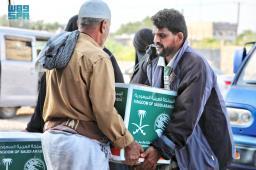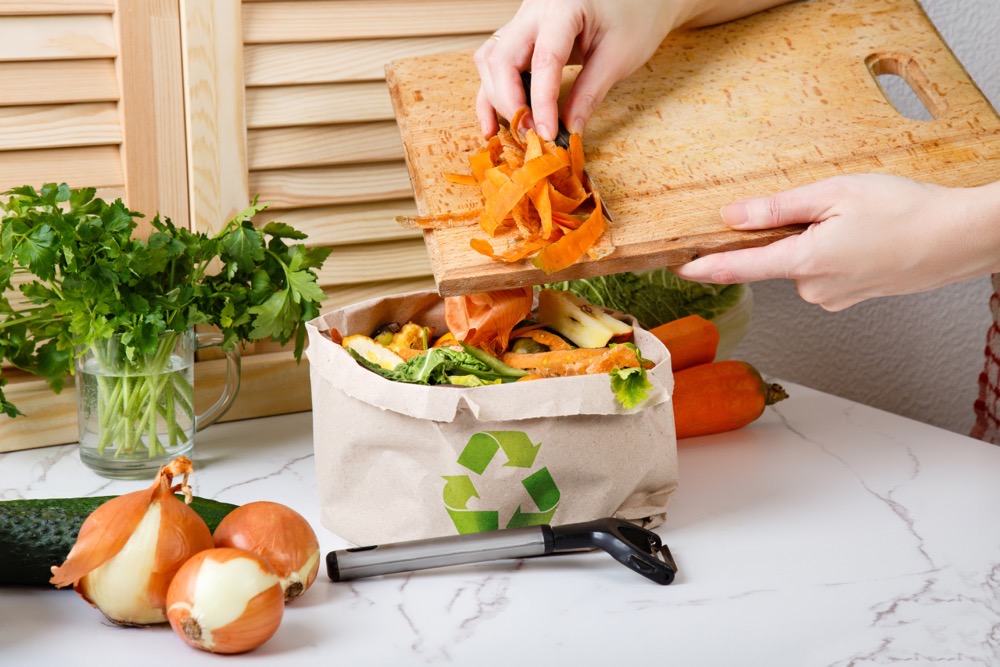MAKKAH: When the pilgrimage season begins, pilgrims’ guides temporarily leave behind their regular jobs and professional titles to serve visitors of all nationalities. It is a solemn and blessed role that many Makkans inherited from their parents and grandparents.
The male and female guides find comfort and pleasure in serving pilgrims, despite the lack of financial reward. They consider their service an honor they are granted each year.
Dr. Talal Qutub, for example, normally works as an internal medicine consultant. He said that he has been blessed to serve pilgrims since early childhood, inheriting the job from his family. They cultivated within him the love of pilgrims and caring for them, from the moment they arrive in Makkah until they depart.
He said that there is a mutual love, appreciation and respect between pilgrims and their guides, and to the guides those feelings are like the oxygen they breathe.
Qutub stated started out in 1973 as an independent guide, before becoming a member of the board of directors of the Institution of Iranian Pilgrims’ Guides and then serving as its president for many years.
“I became the head of the coordinating body of the institutions of the sects’ leaders, during which I was able to complete my studies in medicine and obtain my Bachelor of Medicine and Surgery degree in Pakistan without interruption to the service of pilgrims,” he said. “Then I joined Saudi Airlines as a doctor in medical services and became general manager of the medical services.
“I was practicing my profession as a doctor and obtained a doctorate in the field of the digestive system and liver while studying Austria, but continued serving pilgrims during my studies there by coming to the Kingdom during the pilgrimage season.”
He said that serving pilgrims is an important part of his life and he could not give it up. It is also a calling that he has passed on to the next generation.
“My son, Dr. Hadi, has inherited the profession from me,” he said. “He is a digestive and liver disease consultant, and a member of the board of directors of the Institution of the Iranian Pilgrims’ Guides.”
Guide Ahmed Halabi, a journalist who specializes in pilgrimage services, said: “Pilgrimage guidance has been linked since its inception in 683 AH/1284 AD to providing special services to the pilgrims of the sacred house of God, including reception, circumambulation and supplications.
“This is what Al-Qasim Bin Youssef Al-Sabti refers to in his book ‘The Beneficiary of Expedition and Expatriation.’ He quotes the traveler Ibn Rashid, who performed pilgrimage in 683 AH/1284 AD: ‘The people of Makkah and their children receive pilgrims and teach them rituals. They train their boys on that, so they teach pilgrims prayers and supplications.’”
Halabi added: “We find many guides who have inherited the profession from their fathers and grandfathers, and are proud of it because it was limited to the judges and scholars in the beginning.”
He said that beautiful words of praise and gratitude increase the sense of pride that guides take in their work. Swiss traveler and historian Jean Louis Burckhardt, for example, said: “The guides are the leaders of the pilgrims during the rituals of pilgrimage and while visiting the holy places in the Prophet’s city.”
In his book ‘The Gentle Pleasures in the Mind of the Pilgrim to the Holiest Place,’ Shakib Arslan wrote: “There are two groups in the honorable Hejaz that visitors of Hijaz need and must have a relationship with: Guides in Makkah and Madinah.”
Lady Evelyn Cobbold, a convert to Islam who in 1933 became the first British Muslim woman to perform Hajj, describes in her book “Pilgrimage to Mecca” the details of her visit.
“Time will not erase from my mind and my memory the scenes that I saw in Mecca and Medina, and the strength of faith, beauty of loyalty, and love of good, for both people and enemies alike, which I felt in the Holy Land,” she wrote.
A number of prominent people have served as guides through the years.
“There are many personalities,” said Halabi. “Perhaps the most prominent of them is Dr. Hamid Al-Harsani, who held the position of Minister of Health during the period from (1961 to 1962). He was not only a guide but a leader of guides.
“There was also the late Sheikh Saleh Kamel. His family worked in guidance and his father worked in the Cabinet Office, but he was keen to attend the pilgrimage season to serve the pilgrims coming from Africa. Their office was located in Al-Shabika.”
Faten Hussein, a reporter and specialist in pilgrimage guidance, said the job of guide is inherited by many Makkans by virtue of their proximity to the Holy Sites, their close relationship with the pilgrims, and knowledge of their languages and culture.
She that many begin their work as guides at a very young age, and that the most important thing that distinguishes them is their moral values. A spirit of sacrifice and unlimited benevolence in serving the needs of pilgrims have instilled in them a unique religious identity built on strong belief. They are religious role models for pilgrims, she added.
However, as times have changed, and the number of pilgrims has increased dramatically, so too has the nature of the relationship between guide and pilgrim. What was once a close, almost familial relationship, is now, by necessity, more businesslike.
“Pilgrimage guidance was initially an individual profession, in the sense that the individual and his family carried the burdens and responsibilities of guidance, from the pilgrims’ arrival in Makkah until they departed,” said Hussein.
“But the increase in the number of pilgrims (created a lot of challenges) in performing the profession as it was based on randomness and personal diligence and the individual’s ability to perform all tasks with the required accuracy. This situation led to the emergence of the guidance institutions in (1982), which are based on organized, collective work to intensify efforts and unify procedures to upgrade the services provided to the pilgrims.
“But this in turn led to a cooling in the relationship between pilgrims and guides because pilgrims were placed in distant residences completely separate from the residences of guides and their families, which formed barriers in communication and human relations and led to the shrinking or fading of the close relationship that used to exist between them in the past.”
In the old days, Hussein said, pilgrims and their families used to spend six months or more in Makkah. Female guides worked in roles such as reception and hospitality, preparing locations, accompanying female pilgrims to the holy places, looking after their valuables, providing health care or religious awareness, and even caring for their children.
“In recent years, female guides have worked in a more advanced way and performed high-quality services for female pilgrims,” she said. “Cultural- and religious-awareness meetings are provided for female pilgrims, the content of which is determined according to the needs of the targeted groups. Female guides are also trained in the art of dealing with female pilgrims, the art of speech, and in first aid and other courses.”
Sami Al-Muabber, the chief of Russeifa neighborhood in Makkah, recalled the relationship that developed between guides and pilgrims in years gone by, from their arrival on ships until their departure after spending six or seven months among Makkans. He compared the moment of parting with saying farewell to close family members.
He also highlighted the important role played by the women of Makkah, even many years ago, who went to extraordinary lengths to provide first-class hospitality, from preparing delicious meals to sewing clothes.
Al-Muabber said that pilgrims in the past would spend more time in Makkah and Madinah than in their home countries. As a result, they learned Arabic and taught others their mother tongues. This had a social impact on the way of life of Makkans, who treated the pilgrims as part of their families and essential partners in the social life of the city.
Pilgrims used to arrive at the beginning of the month of Rajab by “Babur” (ship), he added, and stay until Safar, seven months later, which gave plenty of time for them to integrate with Makkans. Pilgrims lived in the homes of their guides. The owner would vacate most of the house, keeping only a room on the roof for himself and his family, with a space in front of it.
The joy of the pilgrims’ arrival was similar to the arrival of Eid, said Al-Muabber. A great feast, called hospitality, was laid on for them, to which all the people of the neighborhood were invited. He added that Makkans would compete with each other to offer hospitality to pilgrims, who would stay, eat and drink as guests of God.
Makkan women shared the same divine rewards as male guides, he said, because they took care of their visitors, accompanied female pilgrims to textile stores and bought them what they needed, and sewed their clothes. Female pilgrims would also buy eyeliners, incense and framed pictures of Makkah and Madinah. Makkan women used to help female pilgrims choose their clothes and prayer mat. Such was the closeness of the relationship that developed over many months between pilgrim and guide, saying goodbye was painful.
“It was like saying goodbye to a family member,” said Al-Muabber. The visitors, he added, became part of the family, sharing moments of happiness and sadness.
Nowadays, the high number of pilgrims and the ways in which the wider world has changed mean that they do not get to know the Makkans in such a deep and meaningful way. Some pilgrims now arrive on the Day of Arafah and leave soon after. They no longer have the opportunity to share with the people of Makkah the beauty of meeting and getting to know each other, or create memories together that will last a lifetime.
Al-Muabber pointed out that at the beginning of the reign of King Saud the number of pilgrims was about 200,000; now there more than two million each year, and they spend much less time in Saudi Arabia. With such sweeping changes, the days when pilgrims and locals could meet, spend time together and form deep bonds that lasted a lifetime are long gone.





































